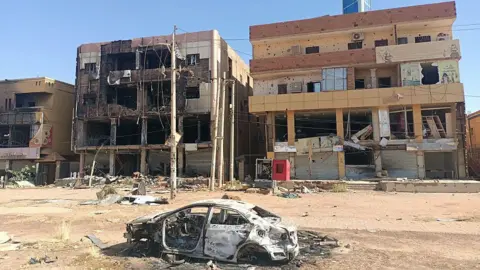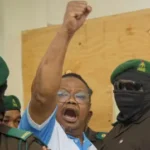In a significant development in Sudan’s ongoing conflict, government forces have successfully pushed rebel groups completely out of Khartoum State, marking a decisive shift in the country’s security landscape. This military victory not only restores government control over the capital region but also signals a potential path toward stability and peace.
Background of the Conflict
Sudan has faced decades of internal strife, with various rebel groups challenging central authority over the years. The recent escalation began in 2023 when factions opposed to the transitional government launched coordinated attacks, aiming to seize strategic locations across Khartoum State—the political and economic heart of Sudan. These groups, primarily composed of remnants from earlier insurgencies, sought to destabilize the region and push for greater autonomy or regime change.
The Military Campaign and Key Operations
The Sudanese Armed Forces (SAF), supported by paramilitary units, launched a comprehensive campaign to reclaim territories held by rebels. According to official statements and independent analysts, the military employed a combination of ground offensives, aerial bombardments, and intelligence operations to systematically weaken rebel positions.
By late September 2023, the SAF announced they had retaken key strategic areas in Khartoum State, including the administrative districts of Khartoum, Omdurman, and Bahri. Satellite imagery and reports from human rights organizations confirm that rebel strongholds have been dismantled, with insurgent forces either surrendering or fleeing the region.
Evidence of Complete Rejection of Rebels
Multiple independent sources, including satellite surveillance and on-the-ground reports, confirm the complete withdrawal of rebel fighters from Khartoum State. The United Nations and regional observers have verified the absence of rebel activity within the capital’s vicinity since early October 2023.
Furthermore, local residents report a return to normalcy, with markets reopening, transportation resuming, and government institutions functioning without interference. The redeployment of security forces across previously contested areas underscores the authorities’ confidence in their control.
Impact on Civilian Population and Stability
The push-out of rebels has had immediate positive effects on the civilian population. Reports indicate a significant reduction in violence, improved access to humanitarian aid, and a decrease in displaced persons seeking refuge elsewhere. Humanitarian agencies are gradually expanding operations in Khartoum, providing essential services to those affected by the conflict.
However, experts caution that while the military victory is substantial, underlying political tensions remain unresolved. Sustainable peace requires addressing root causes, including economic hardship, political grievances, and social divisions.
International Reactions and Future Outlook
The international community has largely welcomed the military success, emphasizing the importance of restoring stability. The African Union and neighboring countries have called for continued dialogue and reconciliation efforts to prevent resurgence of violence.
Looking ahead, the Sudanese government faces the challenge of consolidating its victory through political engagement, reconstruction, and reconciliation. While the rebel threat in Khartoum has been neutralized for now, the broader conflict in other regions persists, necessitating a comprehensive peace strategy.
Conclusion
The complete expulsion of rebels from Khartoum State marks a pivotal moment in Sudan’s recent history. It demonstrates the strength and resilience of the government forces and offers hope for a more stable future. Nonetheless, lasting peace will depend on political solutions that address the root causes of the conflict, ensuring that the hard-won military victory translates into enduring peace and development for Sudan.
Email Us on editorial@nnafrica.com













